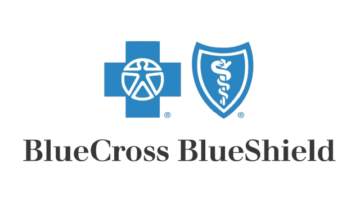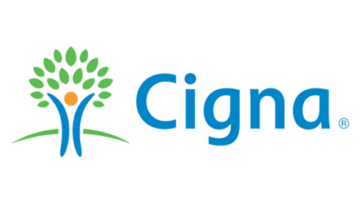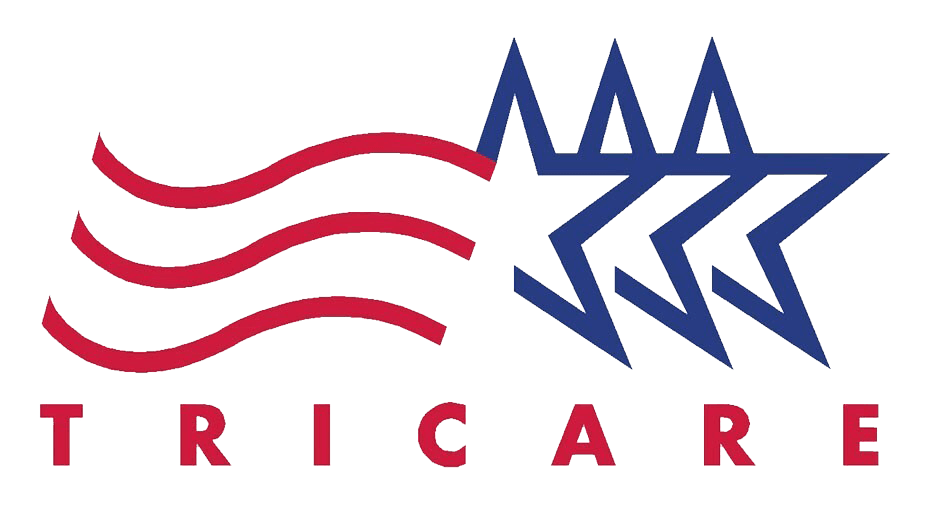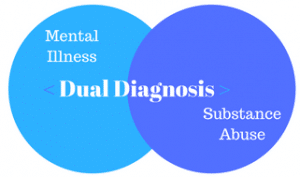Dual diagnosis is a condition where a person is diagnosed with both substance addiction and a serious mental health problem such as an anxiety disorder, depression, or a bipolar disorder. It also goes by the names co-morbid disorders, co-occurring disorders, and co-existing disorders. They all refer to the same issue. When an individual has a co-occurring disorder, they have to simultaneously deal with both problems which makes their road to sober living and mental health much more difficult.
However, having a co-occurring disorder does not mean making a full recovery is impossible. The right help can help make a sober, steady life a reality. Many recovery programs have trained personnel who deal with both types of issues regularly. As such, it is imperative that you ask the treatment center you are seeking for your loved one whether they have expertise and experience in treating both addiction and mental health issues. They must provide assurance that they understand mental health concerns and how to help an individual recover from those as they treat the addiction problem. Not all treatment centers have the expertise and equipment to handle such situations. Failure to treat both issues concurrently almost always leads in one or both of the issues worsening.
Why Dual-Diagnosis is Difficult to Treat
When the individual increases their substance abuse, managing their mental problem becomes a lot more difficult. The reverse is also true. Moreover, having both mental health and addiction issues makes both problems more difficult to diagnose, as the behaviors and symptoms associated with each disorder will often complicate or mask the symptoms of the other.
As such it takes trained and dedicated specialists to untangle the disorders. Determining which condition came first is not as important as ensuring that both are resolved using appropriate treatment and care.
The Role of Denial in Co-Occurring Disorders
Nevertheless, denial is a common factor in both mental health and addiction problems. An addict often has a hard time accepting that their alcoholism or drug addiction is having negative effects on them and their loved ones. The stress of trying to mask the effects of their substance use causes them to feel ashamed and anxious. Moreover, the substances they abuse can cause depression, mood swings, panic attacks, and other symptoms. These symptoms only exacerbate the mental problem and make treatment more difficult for the individual.
The same also holds true for individuals who have mental health problems. A lot of people find their symptoms to be shameful or as weakness. As such, they may either choose to ignore them and hope that they will go away, or turn to drugs and alcohol in an attempt to find relief. After depending on these substances to cure their frustrations, it eventually results in alcoholism and drug addiction, thus creating the co-occurring disorder.
Thus, even though it is hard to admit that they have these problems, it is the most critical step towards resolving their conditions.
Genetic and Family Factors
Often, individuals suffering from either mental health issues or addiction problems find that other people within their families suffered or suffer from the same issue. It, therefore, seems to be a link between these issues and family ties. However, the exact role that genetics play in the development of these conditions has not been figured out yet. Nonetheless, patients of co-occurring disorders need professional help if they are ever going to overcome these problems and lead a healthy life.
Common Mental Health Disorders Linked to Dual Diagnoses
Substance addiction does not always lead to mental health issues, nor do mental conditions lead to addiction. However, they often become co-current because people turn to drugs and alcohol to alleviate their symptoms. Thus, substance abuse does increase an individual’s susceptibility to mental health problems.
Nevertheless, the following are the most common mental health disorders in Dual-Diagnoses:
- Depression.
- Anxiety.
- Bipolar Disorder.
- Schizophrenia.
- Attention Deficit Disorders.
- Personality Disorders.
- Post-traumatic Stress Disorder.
It is important to note that even the prescription medication for mental illnesses such as antidepressants can also cause more problems.
How Many People are affected by Dual-Diagnoses
The Journal of the American Medical Association reports that around 50 percent of all people diagnosed with serious mental health issues also struggle with substance abuse. Moreover, about 37% of alcoholics and 53% of drug addicts have at least one severe mental illness. Additionally, the Journal of Addiction Medicine reveals that nearly 60 percent of individuals with bipolar disorder also suffer from some form of addiction. About 44 million Americans have been diagnosed with some type of mental condition.
However, the number of people suffering from mental illnesses but have not sought help remains unknown. Nevertheless, estimates indicate that about 7 million US adults are coping with both mental health conditions and addiction, or have a dual-diagnoses. Sadly, however, it is estimated that only about 16% of individuals with dual-diagnoses ever seek treatment.
Treating Dual Diagnosis
The past three decades have witnessed a great deal of change on how co-occurring disorders are treated. Up until the mid-90s, people who were suffering from both addictions and mental illnesses were often denied access to treatment for their mental health issues until they were sober. This approach was heavily flawed as substance abuse is one of the major contributors towards mental disorders. As such, a lot of individuals with dual diagnoses were denied the treatment they required.
Today, however, treatment is focused on addressing addiction and mental health problems concurrently. It is a growing field of therapy that is more comprehensive and effective at ensuring that individuals suffering from both conditions make a successful recovery. Dual diagnosis treatment utilizes evidence-based programs such as cognitive-behavioral therapy, counseling, motivation enhancement therapy, in addition to 12-step programs.
The Importance of Comprehensive Treatment
Counseling, in particular, is essential during this treatment as it helps patients learn how to cope with their mental health issues without relying on alcohol or drugs to manage their symptoms. Counselors teach them that these substances actually aggravate their problems and make recovery more difficult. As such, psychiatrists need to see these patients regularly for ongoing mental health support.
Moreover, counselors also teach these individuals about medication compliance and taking medication as prescribed correctly. Individualized treatment plans and cognitive therapy programs are essential towards addressing the needs of each patient to further enhance the success of the program.
Co-occurring disorders require a minimum of a 30-day inpatient program in addition to an outpatient aftercare treatment to realize success. However, the best outcome is usually realized when the patient stays in the inpatient treatment for an extended period. Recovering from dual-diagnoses is not easy, it needs courage and commitment from the patient. This is because it can take months or years to change their maladaptive habits and behaviors. Treatment is essential in helping teach them that basics of sober living, decision making, and coping skills. However, they need to make long-term commitments so that the treatment can be successful.

Dual diagnosis is a condition where substance addiction and a mental health condition manifest themselves at the same time on an individual. For a long time, this condition was not handled appropriately, and patients rarely made a successful recovery. However, advancements in healthcare have seen to newer and more efficient techniques of dealing with the disorder. No one promises that recovering will be easy, but in the right hands, your loved one should get their life back on track.







